Art Nouveau
Art Nouveau was an international style of art, decorative art, and architecture that was very popular between 1890 and 1920. The expression means "New Art" in English, and was inspired mainly by natural structures and forms, not only of plants and flowers, but also of their sinuous curves.
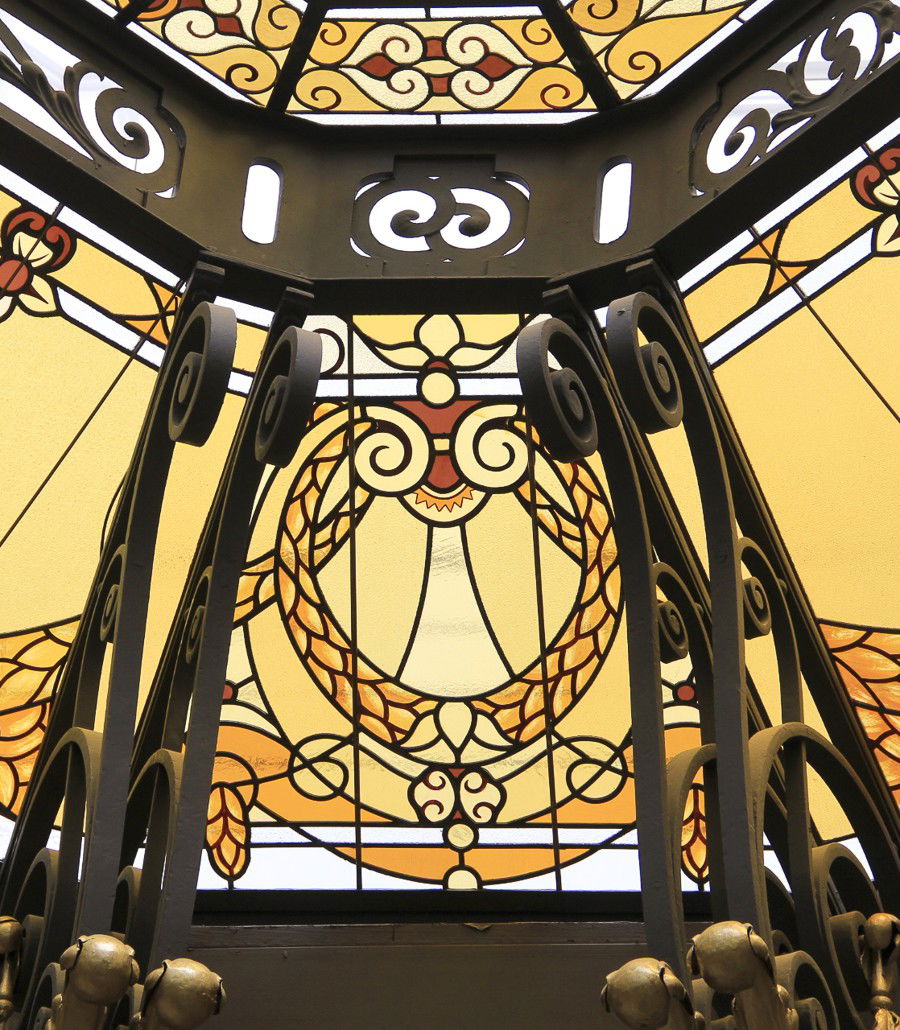
Art Nouveau was more popular in Europe, but its influence was felt worldwide. The period it was most popular was called the Belle Époque.
This art style was so relevant that, nowadays, Art Nouveau landmarks are recognized by the United Nations Educational, Scientific, and Cultural Organization as World Heritage sites. They're significant contributions to the world's cultural heritage.
It is this setting that we'll explore when we play Bruxelles 1897!
Game Info
Bruxelles 1897 is best played with 2 to 4 players, for ages 10 and up, by designer Etienne Espreman. It was illustrated by Vincent Joassin.
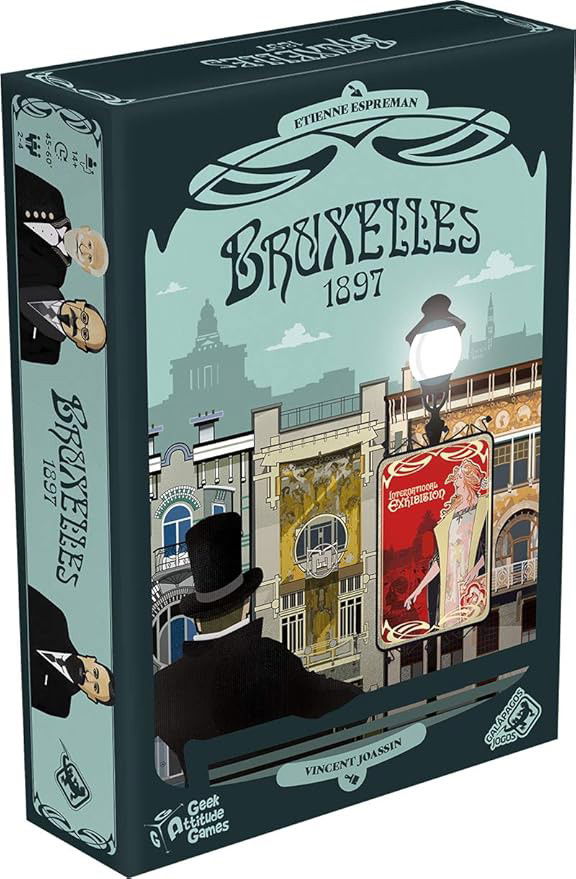
Bruxelles 1897 was released in 2019 by Geek Attitude Games at the 2019 Espiel in Essen, the biggest board game event in the world. Its basic mechanics are worker placement, area majority/influence, auction/bidding, and a modular board.
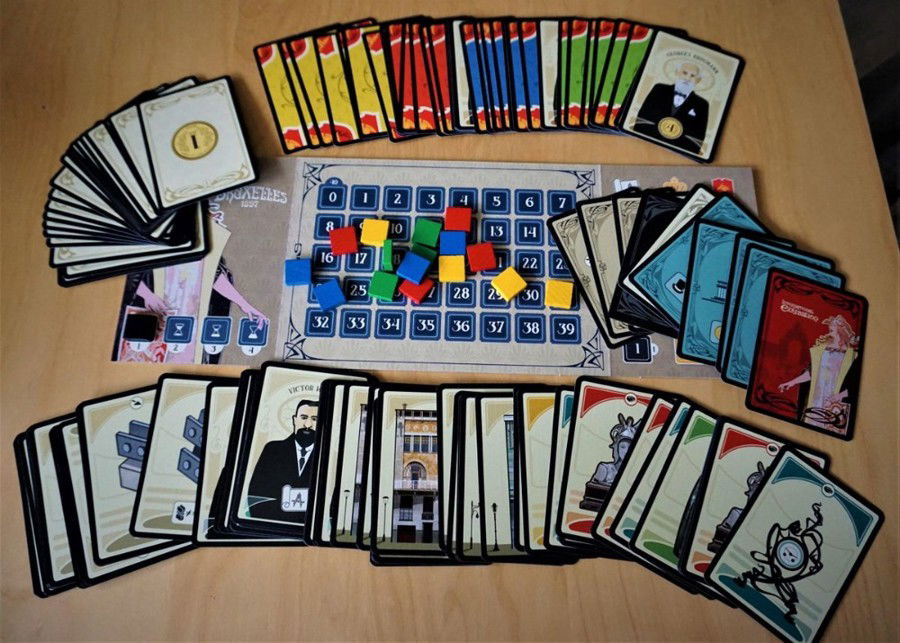
Bruxelles 1897 was inspired by its predecessor, Bruxelles 1893, which was released in 2013 and won the As d'Or's Game of the Year category in 2014. So, Bruxelles 1897 was an award-winning game at conception.
Let's dive right in!
The Game
Bruxelles 1897 is based on a real event in history: the Brussels International Exposition that took place in Brussels between May 10th and November 8th in 1987. Victor Horta and Paul Hankar, which, by the way, are characters in this game, designed the exposition. The Cinquantenaire Park was one of the main locations where this event happened - and it's also featured in the game.
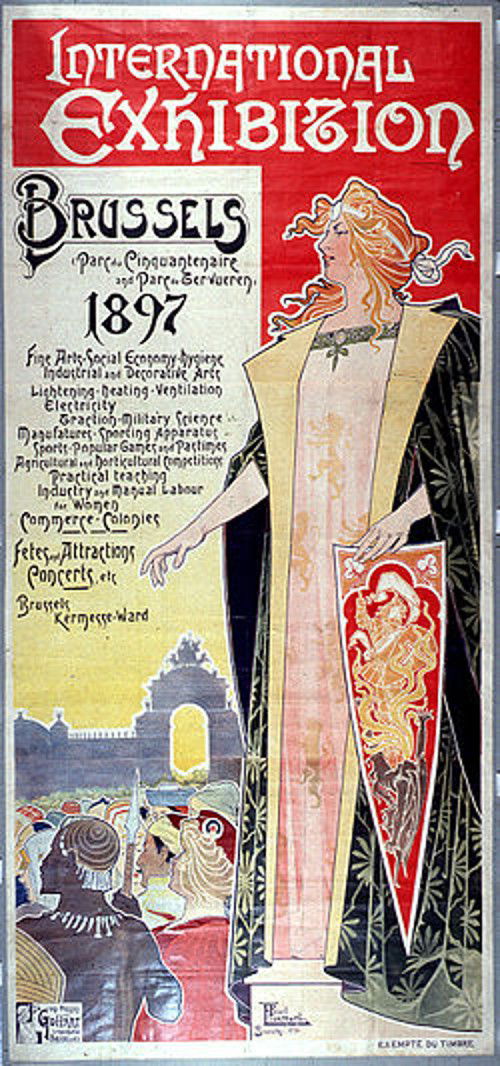
This exposition was so great and relevant that, at the time, 27 countries took part in it, and 7.8 million people went to it.
Now it's our turn, as architects, to negotiate art deals, build the most beautiful houses we can, and expand our social circle at the Brussels International Exposition. Yes, you'll have to be a good businessperson, a great architect, and rise socially.
That's Bruxelles 1897!
The game itself features many real locations from Brussels at the time, and we'll do everything at these locations:
Many real-life figures were featured as Belgian Nobles in this game:

Notice how much love Etienne Espreman, who designed Bruxelles 1897, put into this game: they decided to feature important characters from Brussels at the time to make the game more immersive. It's incredible!
Let's see what a turn in this game looks like.
At first, we'll have very little money, a few architect cards, very little prestige among nobles and architects, and, obviously, little to no influence.
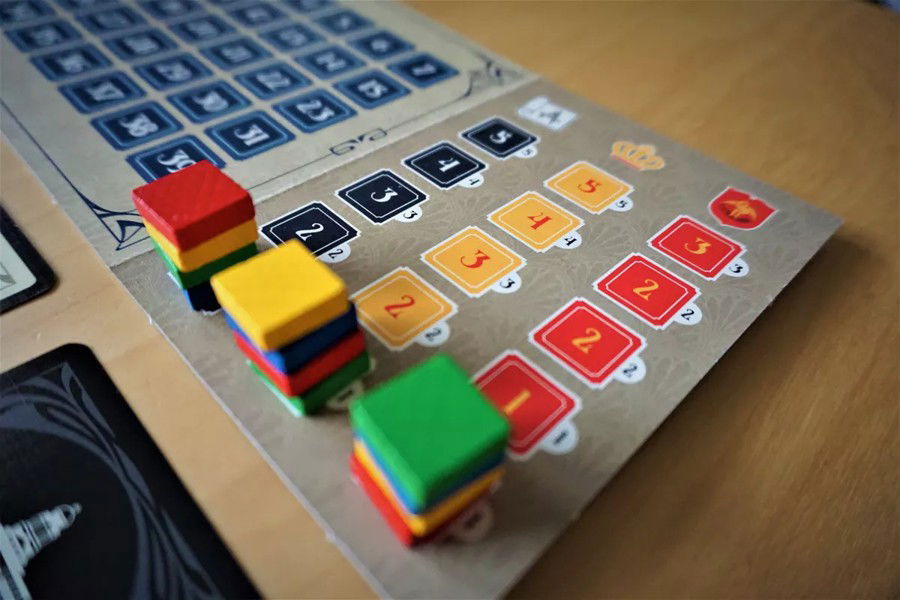
In our turn, we can just do one action in 2 locations:
To do anything in any area (both in the Art Nouveau area and Brussels), you need to use one of your architect cards and activate the action you picked. Please note: to send an architect to the Art Nouveau area, you need to pay a fee.
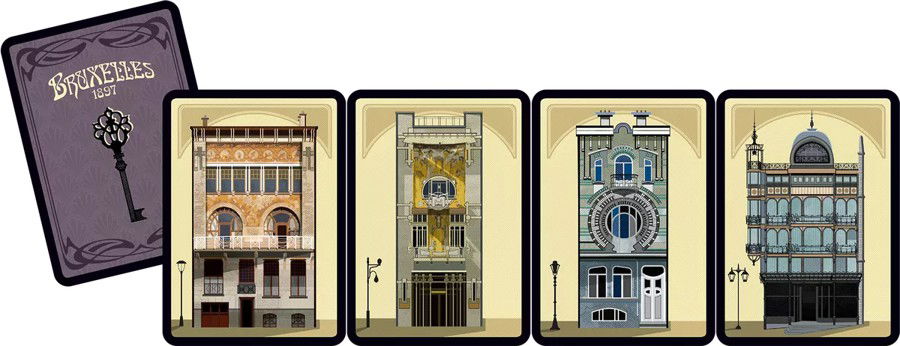
Most actions in the game happen in the Art Nouveau area, and that's where we get victory points. There, we can:
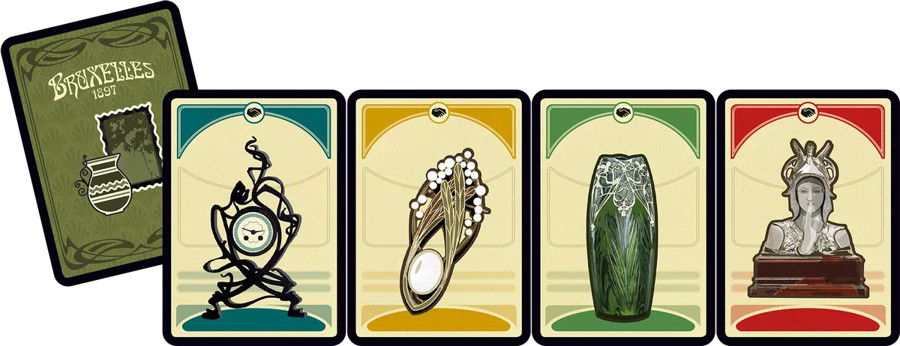
As for Brussels, that's where we can:
If you don't pick either the Art Nouveau area or Brussels, the only thing you can do is pass your turn and not do any actions that turn. Otherwise, if you do anything in one of the 2 areas available, then you just need to pass your turn to the next player and wait until it's your turn again.
After everyone passes their turn, it's time to collect the fruits of your labor, that is, it's time for the Majority Phase, in which we'll see who "did more" in the Art Nouveau area, that is:
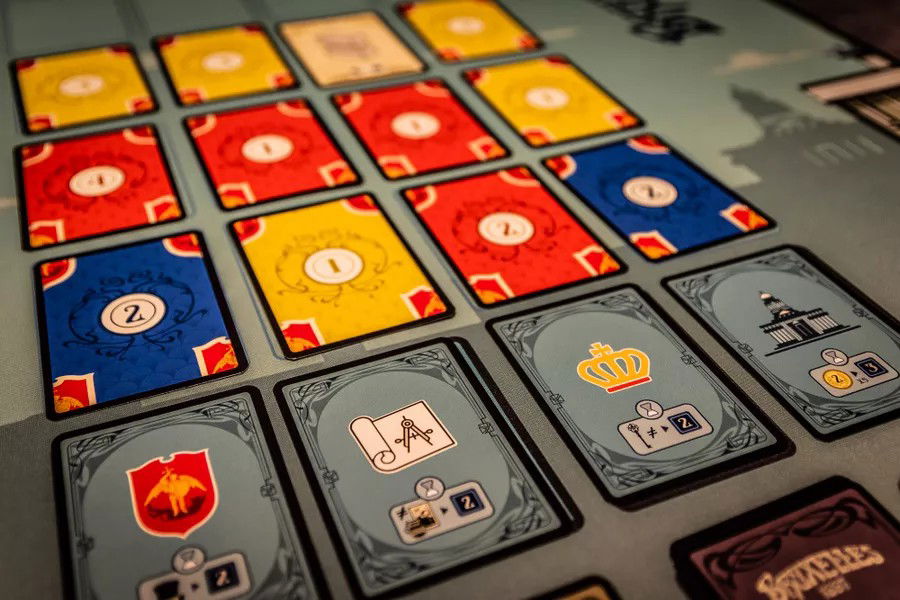
Your actions in the Art Nouveau area reflect on the Coat of Arms Majority phase; whoever did more, gets more victory points based on their Prestige.
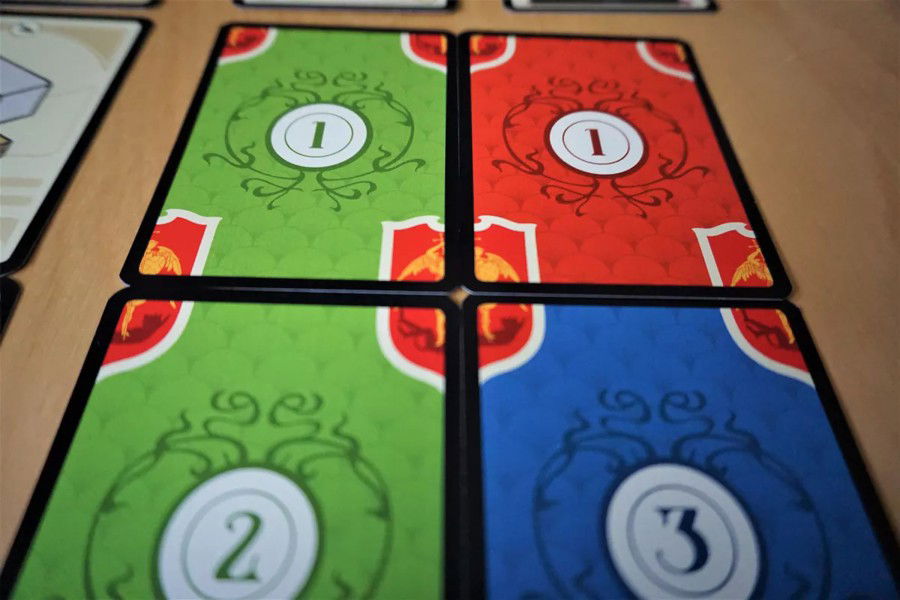
Finally, at the end of the turn, you'll check whoever "did more" in Brussels, and, consequently, that player will have to put one of their own Architect cards in Prison. It's the price you'll pay for bothering people and asking for help in public spaces.
That's the 1st turn in Bruxelles 1897!
End of the Match
The match ends after you go through the Majority Phase in the 4th round, and this is how you'll calculate your final score:
- Gain 3 victory points for each 2 Belgian Francs you possess (max. 5 times, for a total of 15 victory points);
- Gain 2 victory points for each different type of artwork you possess;
- Gain 2 victory points for each different type of house you possess;
- Gain 2 victory points for each of your Nobles (including Georges Brugmann).
The player with the most victory points wins. In case of a tie, the player with the
fewest Architect cards in prison is the winner. If there is still a tie, count up all the values of all the tracks (Architecture, Nobility, Prestige): the involved player with the highest total value is the winner. If there is still a tie, the involved players share the victory.
It's that simple!
Tips and Strategies
Bruxelles 1897 is made of tough decisions. That is, you'll have to sacrifice a few pieces to move others because of the logical nature of the game, and this will certainly make a difference in the following turns, as that's when you'll be rewarded. The good news is: this applies to all players, so don't worry.
I always compare this game to chess, as you'll have to consider each move carefully, and the more moves you can calculate ahead of time, the better. This includes thinking of future strategies you can use if other players steal the one you wanted.
But, I confess, that's the fun thing about Bruxelles 1897. It is a tough game, but greatly rewards highly skilled strategists. Maybe that's why I identified so much with it, besides the fact it includes my favorite mechanic: worker placement.
Well, here's a great tip: use your Architects and money wisely, and always try to get the majority of Columns or Coat of Arms. I'm serious, this often determines who wins. Is it going to be easy? No, but the only way to get to victory is to try.
The Art Nouveau area is where everything happens and there is a lot you can do there, even if someone else does what you wanted, or takes a strategy or card you wanted. One of my greatest suggestions is, always have material in hand. Building houses and getting more influence over the Architects always yields a lot of victory points during and at the end of the game.
Getting the support of the Nobles is essential, as they have excellent abilities, but always remember to save some money in the end to pay for this support. Otherwise, you'll lose victory points.
Investing in works of art is always good, for 2 reasons: you can either sell them and get money for emergencies, or exhibit them and get victory points. You'll need to evaluate each situation carefully to decide what to do with them, but they're always a great investment.
Hosting an Expo is important: it is the difference between exhibiting several of your works of art and only one, or even none. Furthermore, whoever has the Expo card at the end of the turn will be the first to play the next turn. This is critical because the first player will be the first to do anything on the next turn. Use this wisely.
And, finally, always try to get the majority in the Art Nouveau area because this will give you Prestige, influence, and recognition, which will give you victory points at the end of the game.
Unboxing, Rules, and Gameplay Videos
Check out this unboxing:
Learn the rules:
Watch some gameplay:
Learning Opportunities
Bruxelles 1897 is definitely not the best game for beginners. The box states that you can play them with children above 10 years old, but actually, I'd suggest even older than that. Obviously, you can play with 10-year-olds, but I think it would be very complicated.
Anyway, considering that, if you want to work on your math skills, logic, and strategies, Bruxelles 1897 can be great.
I highly recommend that, if you do play it with beginners, you invest time teaching them and giving them advice. Show them the many ways you can play this game, but also try to get them to appreciate the flavor in it. Otherwise, they'll be lost.
Take this opportunity to teach them some logic skills as well. For instance, you'll have to first get material to then build houses. You have to first get works of arts to then exhibit them or sell them, and so on and so forth. It will be quite a lesson in logic and strategy.
You'll need to use math at all times because you'll need to pay your Architects before you send them out. That is, you'll have to manage your budget and how many Architects you have.
Bruxelles 1897 is a lesson in many subjects, but you have to be present when playing it to appreciate it!
I highly recommend Bruxelles 1897 for your collection!!









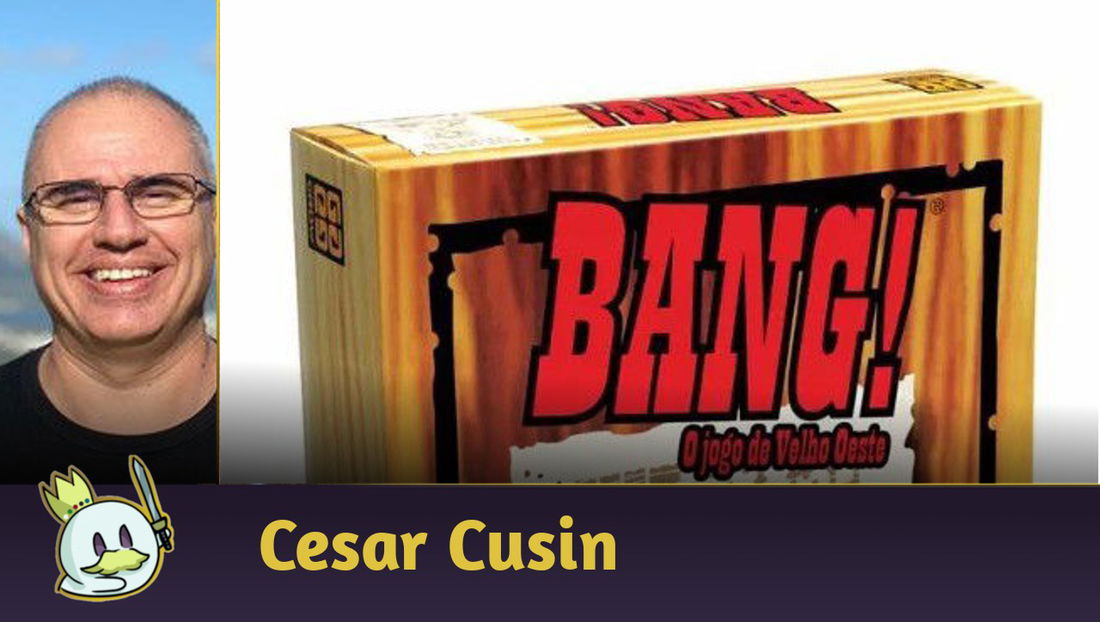
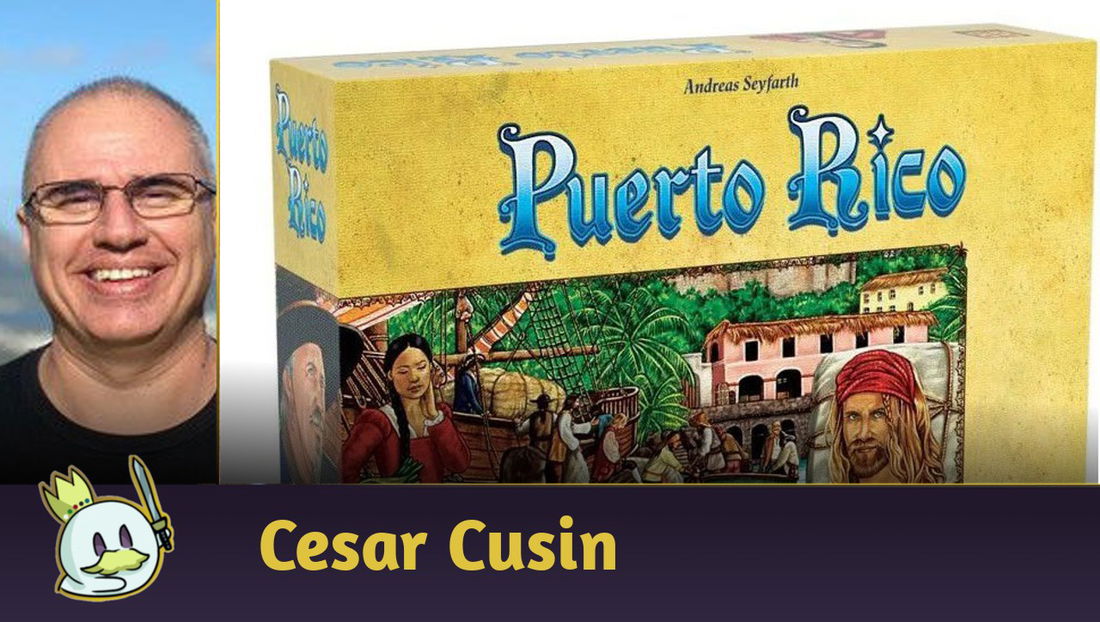



— تعليقات 0
, ردود الفعل 1
كن أول من يعلق